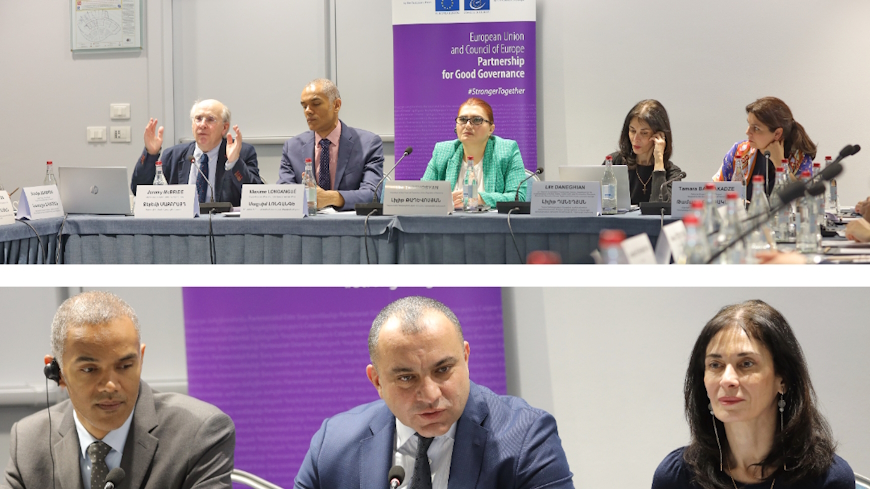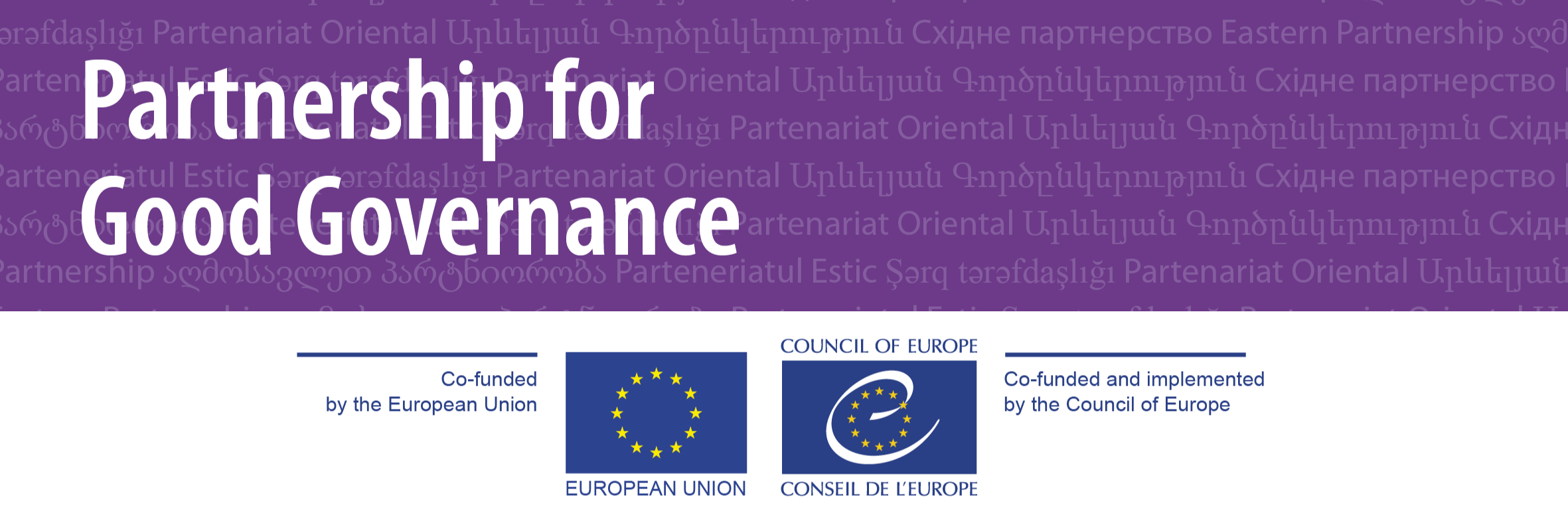A series of professional discussions unfolded last week, addressing crucial legal aspects related to criminal proceedings in absentia and the confiscation of property of illicit origin under the Project ‘’Support to the Justice Reform in Armenia.’’ In total, 90 specialists from the Court of Cassation, the Prosecutor General's Office, and the Constitutional Court participated in these events.
Judges and staff members of the Court of Cassation, as well as prosecutors and staff members of the Prosecutor’s Office, delved into the details of criminal proceedings in absentia. The discussions were framed within the standards set by the Council of Europe, drawing from the case law of the European Court of Human Rights and best practices of member states.
Simultaneously, justices and staff members of the Constitutional Court explored the complex subject of the confiscation of property of illicit origin. The discussions centered on understanding and applying international standards, including a detailed analysis of the Council of Europe Convention on Laundering, Search, Seizure, and Confiscation of the Proceeds of Crime (2020). The professional dialogue also highlighted the alignment with the European Convention on Human Rights to ensure that confiscation measures respect fundamental human rights principles.
Prominent Barrister Mr Jeremy McBride, an expert in human rights safeguards, led the training sessions, providing insights into the nuanced application of legal principles, particularly in the context of human rights safeguards in criminal proceedings.
These events mark a critical step towards reinforcing the Armenian legal system. The expertise shared by Mr McBride and the active participation of legal professionals reflect a commitment to upholding justice, rule of law and human rights in Armenia.
The events are part of the joint European Union and Council of Europe programme “Partnership for Good Governance”, co-funded by the European Union and the Council of Europe, and implemented by the Council of Europe.
Background:
The “Partnership for Good Governance” (PGG) is a joint initiative of the European Union and the Council of Europe for strengthening good governance in the Eastern Partnership region.
PGG provides tailor-made support to Eastern Partnership countries to bring their legislation and practice closer to European standards in the fields of human rights, rule of law and democracy. It supports, in particular, Eastern Partnership countries’ domestic reforms to strengthen justice, counter economic crime, promote equality and non-discrimination, advance women’s access to justice and combat violence against women.






